Social Change in China Offers Great Market Opportunities for German Toy Manufacturers
Social changes in China may be of interest for the German toy industry. The entertainment of children is gaining popularity for the Chinese middle class. While the big American toy companies identified China already as their second biggest sales market, there are still only few German toy manufacturers marketing in China. Chinese clients appreciate German products for their high quality standards and are willing to pay for it.
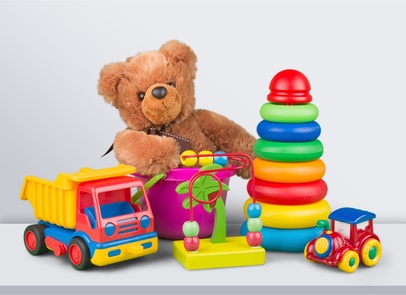
In order to import toys to China a CCC Certification is needed. It is similar to the German CE-seal and serves as a certificate of quality for the protection of consumers. Besides product tests in Chinese laboratories, factory inspections by the Chinese authorities are an important part of the certification process. Navigating the process alone is difficult, time consuming and costly. It can be helpful to have an experienced consultant at your side for a smooth certification process.
Since 2005, MPR China Certification GmbH – China Certification Corporation has been helping companies around the world in obtaining the required product certifications for the Chinese market. We handle all aspects of certification including initial certification, certificate change, certificate extensions, annual follow-ups, renewals, and more.
If you would like more Information regarding CCC certification, please visit our website. Here you can learn more about the certification process and the costs associated with certification. You will also find details regarding our certification package on our website including a general anticipated time frame. Take a look at our references section to see some of our clients and what they are saying about us. For more detailed information please download our free booklet “CCC Made Easy” here. You may also consider our book “A Brief Guide to CCC: China Compulsory Certification”, which can be ordered directly on Amazon here.
Please do not hesitate to call or email with any questions you may have.
During the Golden Week Holiday Chinese Authorities are closed
Monday, October 1 is a National Holiday in China, which also marks the beginning of the Golden Week. This year the Moon Festival will take place at the same time and businesses in China will be closed to celebrate. Consequently, the Chinese Authorities are closed during this time and registration and certification processes will be delayed. The Chinese Authorities will again resume work on October 8, 2018.
Every year more and more Chinese take this opportunity to travel since they only have a few paid annual days of leave. This year there will be more than 650 million travelers, with 7 million who will travel abroad. Based on this number, that means half of the Chinese population will be on the road and using public transportation pushing capacities to their maximum.

The Golden Week was started 1999 by the Chinese Government to promote the country’s tourism industry.
MPR China Certification will be open for business as usual, and we will do our best to work with the Chinese Test labs and Chinese Authorities to minimize the impact and delays for our clients.
With our offices in Germany, the U.S. and China (Beijing, Shanghai and Guangzhou) we will support you throughout your certification process. Our goal is to minimize the effort and costs for our clients, while maximizing the efficiency and accuracy of the paperwork, process and factory inspection.
If you would like more Information regarding CCC certification, please visit our website. Here you can learn more about the certification process and the costs associated with certification. You will also find details regarding our certification package on our website including a general anticipated time frame. Take a look at our references section to see some of our clients and what they are saying about us. For more detailed information please download our free booklet “CCC Made Easy” here. You may also consider our book “A Brief Guide to CCC: China Compulsory Certification”, which can be ordered directly on Amazon hier.
Please do not hesitate to call or email with any questions you may have.
Review Automechanika Fair – Successful Participation of MPR China Certification GmbH and China Certification Centre for Automotive Products (CCAP)
With about 5,000 exhibiters and more than 133,000 visitors the Automechanika is one of the most important fairs in the Automotive Aftermarket for Equipment, Accessories, Consumables, Management and Service.
This year China Certification Centre for Automotive Products (CCAP) and MPR China Certification GmbH shared a booth at the Trade Fair.
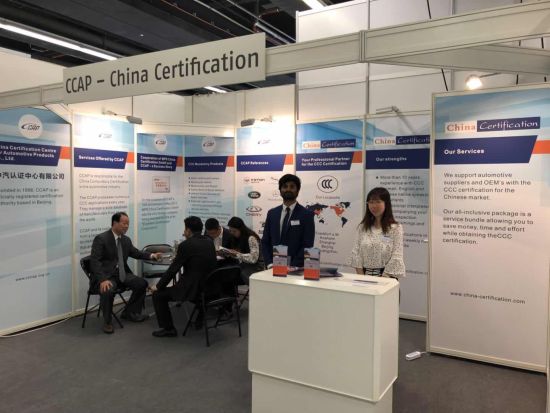
The Automechanika offered an ideal platform to inform interested companies regarding the CCC Certification of automotive parts. Moreover, existing contacts could be maintained and deepened. The requirements for a CCC Certification are very complex and can raise a lot of questions. Since 2005, MPR China Certification offers consulting services and support in the field of CCC Certification and is working closely together with CCAP.
For more information about CCC certification in general, the process, and the associated costs, please visit our website and our News Section where you will find current updates twice a week.
Please do not hesitate to contact us for further details and consultation. You can contact us via e-mail, or call us (UK: +44 2071931135, Rest of Europe: +49 69 2713769150, US: +1 773 654-2673).
You can also check out our free CCC-Brochure, which can be downloaded right here as a PDF file or you consult our book (in English) “A Brief Guide to CCC: China Compulsory Certification”, which can be found directly hier on Amazon.
This year you can also find us at the IAA Commercial Vehicles Fair in Hannover and at the International Supplier Fair (IZB) in Wolfsburg.
New CCAP Implementation Rules for the voluntary certification of motor vehicle horns, brake hoses and fuel tanks
Since the announcement no. 11 of CNCA the CCC certification for motor vehicle horns, brake hoses and fuel tanks are no longer mandatory. Instead manufacturers can undergo a voluntary CCAP certification or CQC certification. The CCAP adjusted therefore the Implementation Rules of those three product groups accordingly. The Implementation Rules are now marked with an addition of an “A” after the year (motor vehicle horns: CCAP-SB-3721:2018A; brake hoses: CCAP-SB-3561:2018A; fuel tanks: CCAP-SB-1101:2018A). The essential adjustments of the three Implementation Rules consist of a modification of CCAP internal specifications for the process of certification, the part marking, and the control procedures for the documentation of marked products. Please note that the latest version of Implementation Rules must be available during your next factory inspection.

According to the requirements of GB Standards (national standards) during a voluntary certification different tests are made. For the above-mentioned product groups those requirements can be found in the following GB standards: GB 15742-2001, GB 16897-2010 and GB 18296-2001. The Implementation Rules present the corresponding guidelines and have now been adjusted.
If you have questions regarding the new regulations and their impact on your products, please do not hesitate to contact us. We offer full English translations of relevant standards and Implementation Rules, CCC checks for your products as well as support in answering questions regarding the planned CCC certification.
For more information about CCC certification in general, the process, and the associated costs, please visit our website and our News Section where you will find current updates twice a week.
Please do not hesitate to contact us for further details and consultation. You can contact us via e-mail, or call us (UK: +44 2071931135, Rest of Europe: +49 69 2713769150, US: +1 773 654-2673).
You can also check out our free CCC-Brochure, which can be downloaded right here as a PDF file or you consult our book (in English) “A Brief Guide to CCC: China Compulsory Certification”, which can be found directly hier on Amazon.
Magna International plans to cooperate with the Chinese BAIC Group
Magna International recently announced the founding of two new joint ventures with Beijing Electric Vehicle Co. Ltd (BJEV) for the development and production of electric vehicles. BJEV is a subsidiary of the state-owned BAIC group, which specializes in electric vehicles. Electric vehicles in China require CCC certification before their market launch. So far, Magna is a supplier of automotive components as well as in the contract manufacturing of certain models of renowned car manufacturers. Customers include Tesla Motors, Volkswagen, BMW and Toyota. The European offshoot Magna Steyr produced, among others, the sports coupe Peugeot RCZ (until 2015), the mini Countryman (until 2016) and currently the full-electric SUV Jaguar I-Pace / E-Pace, the Mercedes-Benz G-Class and partial the BMW 5 Series.
Even though the Chinese government recently relaxed the rules for forming joint ventures for foreign investors, including in the field of electromobility, a partnership with BJEV seems more appropriate for Magna. It is planned to take over a factory and development center from BAIC in Zhenjian, Jiangsu Province. With this acquisition they would be ready to produce the first vehicles by 2020, Magna said in a statement. The factory has a capacity of 180,000 vehicles per year and is intended to serve as the headquarters of the group in China. Magna and BAIC have already signed a contract for the development of a fully electric vehicle for the Chinese market.
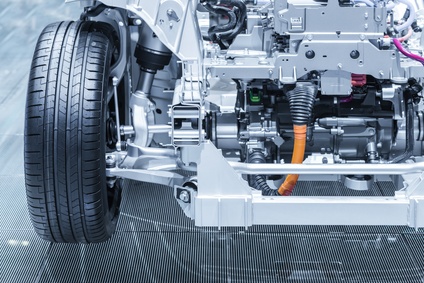
According to unconfirmed sources, a number of customers are already committed to the Magna-BAIC joint venture. One customer is to be the Chinese car-hailing and car-sharing company Didi, among others. The market leader plans to build its own fleet of specialized vehicles geared towards short-haul passenger comfort. A concept car, which will be launched in 2020, has already been introduced as the Didi D1. Didi did not want to reveal any details about a collaboration, but BAIC is a valued partner. Another company, Singulato, already has a partnership with BAIC. The technology group Singulato, supported by domestic investors and the Intel Corporation, is looking for a partner for the production of its first vehicle, the SUV iS6. The market launch was actually scheduled for the end of 2018, but the regulatory bodies have not yet granted the company a license to produce vehicles. Therefore, a production in the factory of Magna-BAIC would be very convenient. Components and vehicles in China must undergo CCC certification and bear the CCC logo.
For more information on how CCC certification may affect your company, or for more information about CCC certification in general, the process, and the associated costs, please visit our website and our News Section where you will find current updates twice a week.
Please do not hesitate to contact us for further details and consultation. You can contact us via e-mail, or call us (UK: +44 2071931135, Rest of Europe: +49 69 2713769150, US: +1 773 654-2673).
You can also check out our free CCC-Brochure, which can be downloaded right here as a PDF file or you consult our book (in English) “A Brief Guide to CCC: China Compulsory Certification”, which can be found directly hier on Amazon.
Daimler plans to build the electric version of the Smart in China
Daimler AG, together with its former partner BAIC and their subsidiary Beijing Electric Vehicle Co. Ltd (BJEV), intends to produce a fully electric and battery-powered version of the Smart in China. Vehicles sold in China must be certified according to GB standards with the China CCC certification (China Compulsory Certification). According to reports by the finance agency Bloomberg, Daimler wants to take advantage of the demand for electric vehicles in China and increase the sales of its Smart brand. Numerous Chinese cities and the government are promoting compact electric vehicles due to high levels of air pollution and the tight parking situation in major cities.
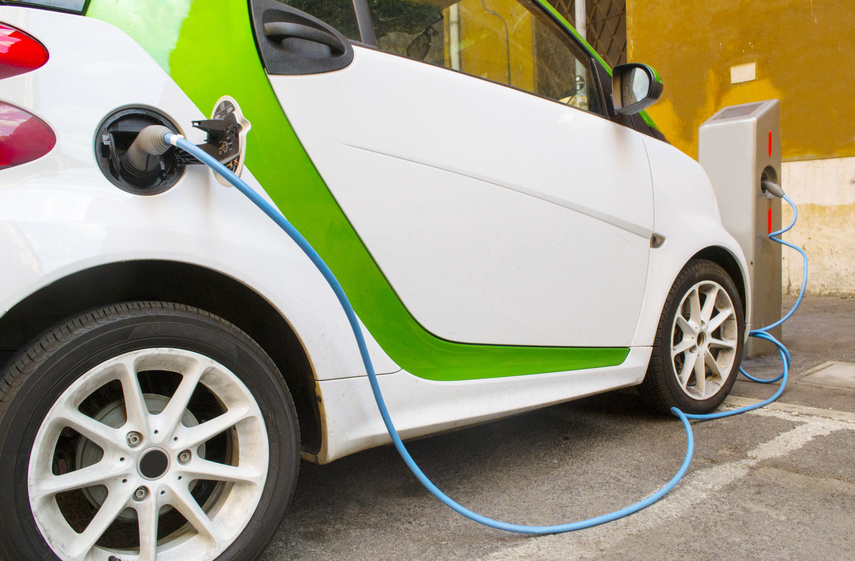
Daimler has been producing Mercedes-Benz branded vehicles in China in a joint venture with the state-owned BAIC Group since 2005. The Smart brand is said to have made losses on the sale of vehicles since the market launch in 1998 and served only for the purpose to keep Daimler’s fleet fuel and emission levels low. With a change of strategy to electric mobility, a change of management as well as the planned introduction of the Smart in China, the world’s largest market for electric vehicles, one hopes for the turnaround. Especially the young and urban customers would like to be addressed by the brand Smart. Daimler already imports Smart vehicles to China, but sales figures have not been released. It is also conceivable to merge the appearance of the electric Smart with the newly founded Daimler brand EQ. In the future, all electric vehicles of the Daimler Group will appear under the name EQ, with the first model of an SUV in 2019.
In addition to the BAIC Group, Daimler also works together with the Chinese carmaker BYD in the field of electric mobility. Here, electric vehicles under the Denza brand are to be developed and produced. According to Daimler in March 2018, the investment and cooperation with BYD should continue to exist. If you intend to produce or import products in China, you need to pay attention as many products must undergo CCC certification and bear the CCC logo.
For more information on how CCC certification may affect your company, or for more information about CCC certification in general, the process, and the associated costs, please visit our website and our News Section where you will find current updates twice a week.
Please do not hesitate to contact us for further details and consultation. You can contact us via e-mail, or call us (UK: +44 2071931135, Rest of Europe: +49 69 2713769150, US: +1 773 654-2673).
You can also check out our free CCC-Brochure, which can be downloaded right here as a PDF file or you consult our book (in English) “A Brief Guide to CCC: China Compulsory Certification”, which can be found directly here on Amazon.
Toyota plans to further expand its production capacity in China and is expanding its plants
A Toyota company spokesman said that the number of vehicles produced at the Guangzhou and Tianjin plants should increase by 120,000 vehicles per year. This is part of a long-term strategy of the Japanese carmaker to increase sales in China at the beginning of 2020 to up to 2 million vehicles per year. That would be an increase of over 50 percent compared to the current figures of around 1.16 million vehicles. Vehicles sold in China are subject to mandatory CCC certification.
In addition, Toyota wants to market its technologies for electric and hybrid vehicles in China in the future. Currently, the Tianjin plant and the Chinese joint venture partner FAW are mainly producing the Corolla and Vios models. As part of the expansion and modernization, 10,000 fully electric and 110,000 plug-in-hydrid vehicles are to be produced annually in this plant. For the long-awaited Toyota compact SUV C-HR two versions have been developed specifically for the Chinese market. One will be marketed under the name Ioza by the joint venture Guangzhou-Toyota, while a fully electric model will be released in the course of 2020. In the compact SUV segment, Honda is Toyota’s strongest competitor in the Chinese market. Its new model CR-V and other vehicles brought it together to 1.44 million units sold last year compared with 1.16 million from Toyota.
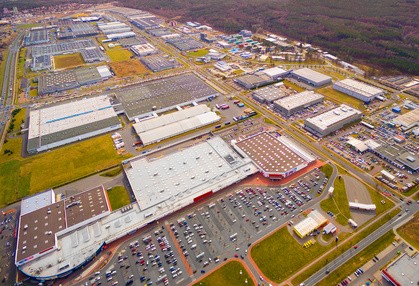
It has also been announced by unknown sources that Toyota is also planning to build one or two more new plants in the corridor between the two coastal cities of Guangzhou and Tianjin. This reorientation of local production and stronger focus on the Chinese market is also related to the current trade dispute between the US and China. For example, the import duty in China has been increased to 40 percent for vehicles produced in the US, while Toyota only has to charge 15 percent for Japanese vehicles. This will benefit, among other things, the models of the Toyota premium brand Lexus, which can boast good sales in China. Vehicles and components imported into China must be CCC certified.
For more information on how CCC certification may affect your company, or for more information about CCC certification in general, the process, and the associated costs, please visit our website and our News Section where you will find current updates twice a week.
Please do not hesitate to contact us for further details and consultation. You can contact us via e-mail, or call us (UK: +44 2071931135, Rest of Europe: +49 69 2713769150, US: +1 773 654-2673).
You can also check out our free CCC-Brochure, which can be downloaded right here as a PDF file or you consult our book (in English) “A Brief Guide to CCC: China Compulsory Certification”, which can be found directly hier on Amazon.
BMW recalls vehicles worldwide because of potential problems with the brake lines
Affected by the recall or the delayed delivery are about 19,000 vehicles of the BMW X3 and X4, which rolled off the line in the American Spartanburg plant. Affected are cars built between mid-April and the end of June 2018. In Australia, some of the affected vehicles have already been delivered to customers. BMW Australia puts the number of recalls at about 400 cars. The affected customers have already been informed directly by BMW. As a result, a delivery of about 400 BMW X4 crossover SUVs to China was stopped until the problems with the brake lines were clarified, said a spokesman for the group. In June, the previously mandatory China CCC certification of brake lines was converted into a voluntary certification.
BMW informed, so far it had come to no accidents because of the brake lines or the brake system. The cause is a batch of possibly defective calipers for the rear axle of a supplier, whose name was not mentioned. There is the possibility that air could accumulate in the hydraulic brake system and the rear brake could fail, or under extreme circumstances, the brake pedal could be ineffective.
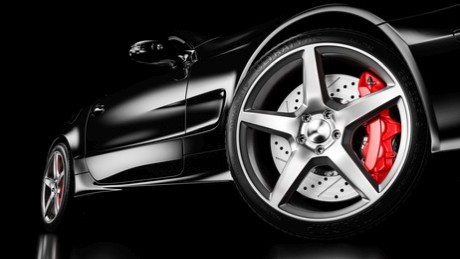
The Chinese Government and its CNCA (Certification and Accreditation Administration of China) regulatory body have not issued a statement regarding the recalls of BMW. However, a list of products was published in June 2018 that will no longer be subject to China CCC certification in the future. Among the numerous products are also brake lines. Manufacturers should therefore convert their certifications into the optional CQC or CCAP certificates. The two abbreviations stand for the Chinese certification authorities China Quality Certification Center (CQC) and the China Certification Center for Automotive Products (CCAP). We are pleased to assist you if you are a manufacturer of the affected products and have questions about the new regulations for a voluntary product certification.
For more information on how CCC certification may affect your company, or for more information about CCC certification in general, the process, and the associated costs, please visit our website and our News Section where you will find current updates twice a week.
Please do not hesitate to contact us for further details and consultation. You can contact us via e-mail, or call us (UK: +44 2071931135, Rest of Europe: +49 69 2713769150, US: +1 773 654-2673).
You can also check out our free CCC-Brochure, which can be downloaded right here as a PDF file or you consult our book (in English) “A Brief Guide to CCC: China Compulsory Certification”, which can be found directly hier on Amazon.



